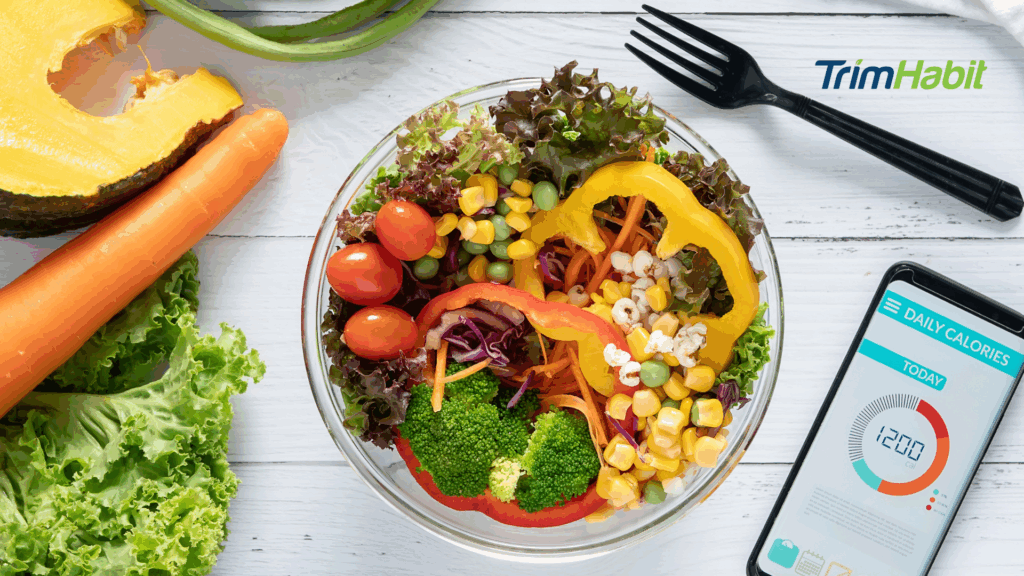Breakfast is known as the most important meal of the day, but what you eat for breakfast can also play a significant role in your weight loss journey. Skipping breakfast may seem like an easy way to cut calories, but studies have shown that it can actually lead to overeating later in the day. To avoid this, it is essential to make sure you are consuming the right foods in the morning to fuel your body and kickstart your metabolism.
In this article, we’ll dive deeper into the best things to eat for breakfast to lose weight and provide tips on how to incorporate them into your morning routine for maximum weight loss results.
Breakfast And Weight
Breakfast can have an impact on your weight, but it depends on what you eat and your overall dietary habits. Breakfast can even affect your overall calorie intake throughout the day.
If you skip breakfast, you may be more likely to overeat later in the day due to hunger and low energy levels. On the other hand, if you eat a healthy breakfast that is high in protein and fiber, you may feel fuller for longer and be less likely to snack on unhealthy foods or overeat later in the day.
By incorporating a healthy breakfast into your daily routine, you may be able to better manage your weight and maintain a healthier overall diet.
How Much Breakfast Should You Eat For Weight Loss?
If you’re looking to stay satiated until your next meal, it’s crucial to prioritize protein in your breakfast. Aiming for at least 25 grams of protein can keep you feeling full and prevent the urge to snack throughout the day.
While a carbohydrate-rich breakfast may provide a quick energy boost, incorporating healthy fats and protein can provide sustained energy and prevent overconsumption later in the day.
Best Things To Eat For Breakfast To Lose Weight
- Eggs
Eggs are a true nutritional powerhouse, packed with protein and essential vitamins and minerals, including selenium and riboflavin.
Due to their high protein content, eggs may lower hunger when consumed with breakfast, and may promote weight loss.
One research of 30 overweight women, for example, found that eating eggs for breakfast dramatically boosted feelings of fullness and lowered food intake later in the day compared to eating a bagel1.
- Wheat Germ
Wheat germ is a wheat kernel component high in vitamins and minerals such as manganese, thiamine, and selenium.
It’s also high in fiber, with roughly 4 grams of every 1-ounce (28-gram) serving.
According to research, boosting your soluble fiber intake from cereal grains may help you lose weight.
In one trial, consuming a high-fiber cereal reduced appetite and food intake while also helping normalize blood sugar after a meal2.
Try using wheat germ as a topping for oatmeal, smoothies, or Greek yogurt bowls to add crunch and extra fiber to your delicious breakfast.
- Bananas
Bananas, which are high in fiber but low in calories, are an excellent alternative to sugary breakfast cereals for satisfying your sweet appetite first thing in the morning.
One medium banana contains just over 100 calories and 3 grams of dietary fiber, providing up to 12% of your daily fiber requirements in one serving.
Fiber slows stomach emptying to reduce cravings and keep you feeling fuller for longer3.
Multiple studies have found that upping your fiber intake from fruits and vegetables is associated with increased weight loss4,5.
Additionally, unripe bananas are a good source of resistant starch that your stomach and small intestine don’t digest. Instead, it passes through your digestive system relatively intact and ends up in your large intestine, where it serves as food for beneficial gut bacteria.
- Yogurt
Yogurt, which is creamy, delicious, and filling, is a fantastic addition to a weight-loss diet.
Greek yogurt, for example, provides a substantial amount of protein in each serving, making it a perfect weight-loss breakfast item.
Compared to harmful snacks like chocolate and crackers, one research of 20 women found that eating high-protein yogurt as a snack lowered appetite and food intake by 100 calories later in the day6.
Another study showed that those who ate at least seven servings of yogurt each week had a lower risk of being overweight or obese than those who did not regularly consume yogurt7.
- Smoothies
Smoothies are not only a quick and easy method to get a concentrated dosage of nutrients, but they also serve as a practical breakfast dish that can help with weight loss.
You can personalize your drink to your unique preferences because you can customize your ingredients.
Packing your smoothies with vegetables and low-calorie fruits will help you feel satiated for longer8.
- Berries
Berry varieties such as strawberries, blueberries, blackberries, and raspberries are all incredibly nutrient-dense, meaning they’re low in calories but packed with essential nutrients.
In addition to providing many essential vitamins and minerals, berries are rich in fiber, which may reduce hunger and food intake.
Add berries to your morning smoothie, oatmeal, or yogurt to take advantage of their unique weight-busting benefits.
- Grapefruits
With good reason, grapefruits are a staple of many diets and weight loss plans.
In addition to having few calories, grapefruits are abundant in water and fiber, which again, can aid in weight loss9,10.
According to one study, eating half a grapefruit before meals caused significant weight loss compared to a control group, which included 91 obese adults. Those who consumed grapefruit lost an average of 3.5 pounds (1.6 kg) during the 12-week research, nearly five times higher than the control group11.
- Coffee
Coffee’s caffeine component may help weight loss by accelerating fat burning and metabolism.
According to a study, a cup of coffee in the morning may offer significant weight loss advantages. In a small study involving eight males, caffeine increased metabolism by 13% and improved fat breakdown12.
Caffeine can also act as an appetite suppressant, which may help you consume fewer calories throughout the day.
- Kiwi
Kiwis have a remarkable nutritious profile thanks to their high vitamin C, vitamin K, and potassium content. They are also a fantastic source of fiber, providing up to 21% of your daily requirements in only one cup (177 grams).
A high-fiber, calorie-restricted diet was efficient for reducing appetite and food obsession, as well as body weight, body fat, and waist circumference, according to one research of 83 women13.
They also act as a natural laxative by stimulating the movement of your digestive tract to support regularity and help you lose water weight temporarily14.
- Green Tea
There’s a strong possibility that you’ll find leafy greens among the ingredients in practically any diet pill or fat-burning supplement. The ability of green tea to speed up metabolism and burn fat has received extensive research.
For instance, a 23-person study indicated that within 30 minutes of consuming three green tea extract capsules, fat burning rose by 17%15.
There are limitless ways to enjoy green tea in the morning. Try adding a squeeze of lemon, drizzling on a bit of honey, or brewing your tea with ginger or mint to bring a tasty twist to your cup.
- Chia Seeds
Chia seeds are potent and sound as healthy breakfast foods. They contain a lot of fiber and can absorb water to create a gel that swells in your stomach to help you feel fuller for longer16.
They’re also rich in protein, which can slow the emptying of your stomach and reduce ghrelin levels, the hormone responsible for stimulating hunger. Eating chia seeds baked into white bread lowered appetite and blood sugar levels in research involving 11 adults17,18.
Try combining one ounce (28 grams) of chia seeds with one cup (245 grams) of yogurt in a dish or mason jar to make a chia seed breakfast parfait.
Let the mixture soak for about 30 minutes to make the seeds swell. Next, top it off with 1/2 cup (74 grams) of your preferred berries.
In addition, chia seeds are a tasty and nourishing ingredient in tea, smoothies, and overnight oats.
- Oatmeal
Oatmeal is an excellent and healthy breakfast food option, especially if you want to lose weight. Oats are abundant in fiber and protein, two nutrients that affect hunger and weight management, yet are low in calories.
Oats are an excellent source of beta-glucan, a fiber linked to benefits for everything from immune system function to heart health19.
- Nuts
Nuts complement any breakfast greatly since they have the ideal protein, fiber, and heart-healthy fats ratio.
According to a one-year trial on 169 participants, including nuts in a Mediterranean diet, they significantly reduced waist circumference compared to a control group20.
Remember that nuts also contain many calories, so try to eat no more than one ounce (28 grams) at a time to prevent the calories from piling up.
Add nuts to yogurt, cottage cheese, or homemade granola to increase your morning’s nutritional value.
Breakfast Mistakes You’re Making
- Skipping It
Skipping breakfast can slow down your metabolism, making it harder to burn calories throughout the day. It can also lead to overeating later in the day, as well as poor food choices due to hunger and low energy levels.
Additionally, skipping breakfast can negatively impact cognitive function and mood, making it harder to focus and be productive throughout the day. Therefore, it’s important to make sure you eat a healthy breakfast to start your day off right and support your overall health and well-being.
- Not Eating Enough
After a little breakfast, if your stomach is still grumbling, you may be more tempted to overeat or snack on unhealthy foods later in the day, which could result in weight gain. A substantial breakfast can have the opposite effect. Your metabolism is boosted, enabling you to burn calorie intake.
- Skimping on Protein
More than only your muscles benefit from a breakfast high in protein. Later in the day, it might also assist you in controlling your hunger. Yet, that does not permit you to smother your plate in bacon and sausage. Pick heart-healthier options like nut butter, turkey bacon, cottage cheese, Greek yogurt, or leaner milk. Choose milk with the least fat is 1% and skim.
- Canceling Carbs
Don’t exclude eating carbs entirely. Just make wise decisions. “Complex carbohydrates” provide you with constant energy throughout the day. Healthy options include steel-cut oats, fresh fruit, low-sugar granola bars, whole-grain cereal, and bagels. Conversely, “simple carbs” might cause a mid-afternoon energy slump. Avoid foods like fried hash browns, white-flour pancakes or waffles, and fresh fruit juice high in sugar.
- Passing Up Healthy Fats
Unsaturated fats are beneficial to your health. Add nuts or seeds to yogurt, or spread nut butter on whole-wheat toast or an apple to include them in your morning—also, heart-smart, omega-3 fats. You can quickly obtain them by adding ground flaxseed to your cereal. But limit your intake of saturated fats as they elevate your cholesterol. Cut back on butter, whole or 2% milk, and pastries for breakfast.
- Excluding Eggs
A great source of protein and other nutrients is egg whites. Even the yolks, rich in protein, vitamin D, and antioxidants that are good for the eyes, are acceptable in moderation.
However, what about cholesterol? You can eat one entire egg every day if you are healthy. If you have diabetes, heart disease, or are otherwise at risk for developing cardiac issues, you should consume far less than that.
- Super-Sizing Your Cereal
You can be overeating if you’re filling your bowl. Check the nutrition information on the cereal box’s side before you pour. Find the suggested serving size and stick to it; you can use a measuring cup to ensure accuracy. Choose products that are low in sugar and high in fiber.
- Compromising Your Coffee
Your morning coffee is packed with extra calories thanks to a variety of well-liked taste enhancers. Yet there are many methods to make your cup taste lighter. Instead of using sugar, you can sweeten your coffee with stevia or agave nectar. Instead of using cream and whole milk, add low- or no-fat dairy. Sprinkle in some cinnamon, nutmeg, or cardamom to give it an extra kick.
- Drinking the Wrong Juice
Your morning OJ may be drowning in sugar because many kinds of fruit juice have added sugar. Check the label to ensure it reads 100% juice; this is the best way to avoid empty calories. Water can also be used to thin out your beverage. Use whole fruit over juice for the highest nutritional value. It is lower in calorie intake, less sweet, and higher in fiber.
- Waving Off Water
It has probably been hours since you last drank water when you woke up. That makes a refreshing glass of water the perfect beverage to accompany your important meal. It will aid in filling you up without adding calories to your diet. It also helps you clear your mind and overcomes a grouchy morning mood.
- Settling for a So-So Smoothie
Smoothies can be nutritious if you use the right ingredients to make them. You can stick to one or two servings of fruit because adding more can cause your cup to become overly caloric.
Dark-green vegetables like spinach, kale, or bok choy boost nutrition. Low-fat yogurt, wheat germ, nut butter, or ground flaxseed are good protein sources. Use unsweetened almond milk, green tea, or ice to thicken your smoothie instead of sugary juice.
- Buying the Wrong Breakfast Bars
Look at the nutrition facts. You might be surprised by a store-bought bar’s sodium, added sugar, and healthy fat content.
Choose ones with whole-food ingredients, 10–14 grams of protein, and 5 grams of fiber to make up your breakfast. Remember that a bar can be a convenient meal replacement when you’re pressed for time, but a balanced breakfast is always the healthier option.
- Getting Sabotaged by Sugary Yogurt
There are many sweet ingredients in many commercial brands, especially those that already contain fruit or additional flavors. Yogurt is your best option, which is plain, healthy, or stored fat. Then add your mixers, such as berries, a dash of cinnamon or vanilla, or a drop of honey or agave nectar, to make it more interesting.
Final Thoughts
Starting your day with a healthy breakfast can be an effective way to support weight loss efforts. High-protein foods, such as eggs and Greek yogurt, can help reduce hunger and increase feelings of fullness. Fiber-rich foods, such as oatmeal and berries, can also help control appetite and regulate blood sugar levels.
Adding healthy fats, such as nuts, to your breakfast can further increase satiety and support weight loss. It’s also important to avoid sugary and processed foods, such as pastries and sugary cereal, which can lead to energy crashes and cravings throughout the day.
Preparing breakfast at home using whole, minimally processed ingredients can help ensure you’re getting the nutrients you need while avoiding excess calories and additives. Lastly, sticking to a regular breakfast routine can help regulate hunger hormones and support healthy eating habits throughout the day.









